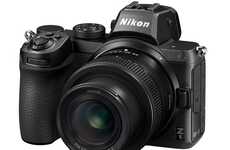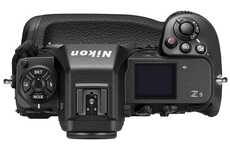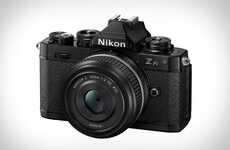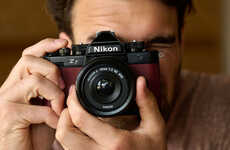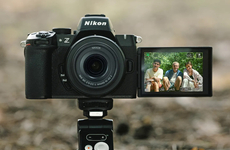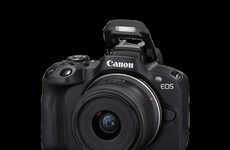
This Entry-Level Camera Offers Boosted White Balance and Low-Light Imaging
Rahul Kalvapalle — August 18, 2016 — Tech
The selection of a good entry-level camera is crucial as it can make the difference between a budding photographer quickly honing their skills or dropping out of the hobby altogether.
At a price of only $650 inclusive of a kit lens, the Nikon D3400 is perfect for people looking to graduate away from smartphone cameras to real photography. This entry-level camera comes equipped with a 24.2-megapixel CMOS sensor and an Exspeed 4 processor that promises boosted white balance performance, not to mention higher quality of images in low-light situations. The camera is also capable of sharing and transferring data over low-energy Bluetooth.
With a healthy suite of features and an unintimidating interface, this entry-level camera promises to help you get started in DSLR photography.
At a price of only $650 inclusive of a kit lens, the Nikon D3400 is perfect for people looking to graduate away from smartphone cameras to real photography. This entry-level camera comes equipped with a 24.2-megapixel CMOS sensor and an Exspeed 4 processor that promises boosted white balance performance, not to mention higher quality of images in low-light situations. The camera is also capable of sharing and transferring data over low-energy Bluetooth.
With a healthy suite of features and an unintimidating interface, this entry-level camera promises to help you get started in DSLR photography.
Trend Themes
1. Entry-level Cameras - The rise of entry-level cameras presents opportunities for companies to develop user-friendly features and interfaces that cater to novice photographers.
2. Boosted White Balance - Improvements in white balance technology offer opportunities for camera manufacturers to enhance color accuracy and produce more vibrant images.
3. Low-light Imaging - Advancements in low-light imaging capabilities create opportunities for camera companies to develop cameras that excel in low-light conditions, providing better image quality in challenging environments.
Industry Implications
1. Camera Manufacturing - Camera manufacturers can leverage the trend of entry-level cameras and develop products with user-friendly features to cater to the growing market of novice photographers.
2. Photography Equipment Retail - Retailers can capitalize on the trend of entry-level cameras by offering comprehensive product bundles and educational resources to attract and support beginner photographers.
3. Image Sensor Technology - Companies specializing in image sensor technology have the opportunity to innovate and develop sensors that improve white balance performance and low-light imaging, resulting in better image quality across different lighting conditions.
3.2
Score
Popularity
Activity
Freshness

